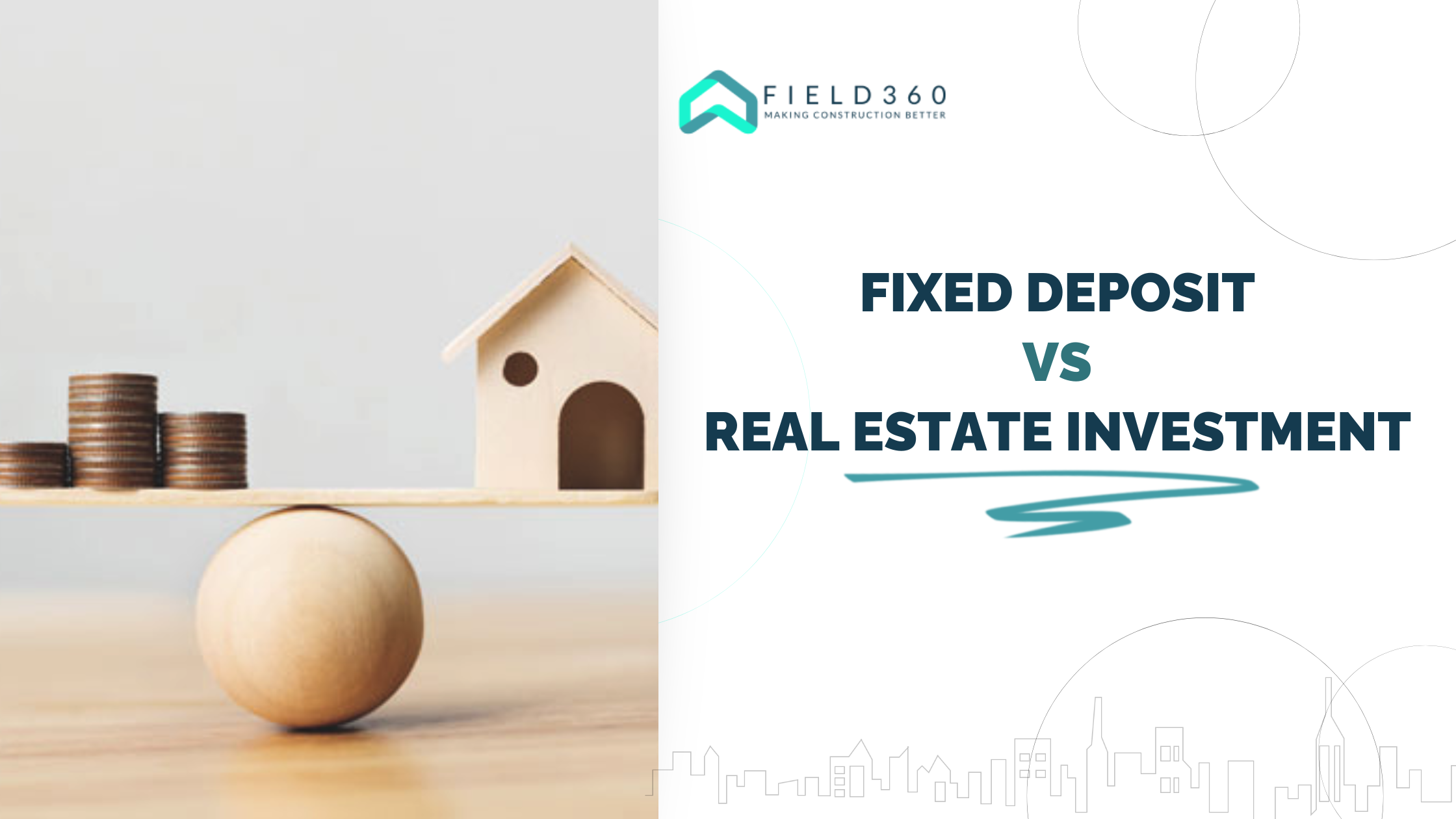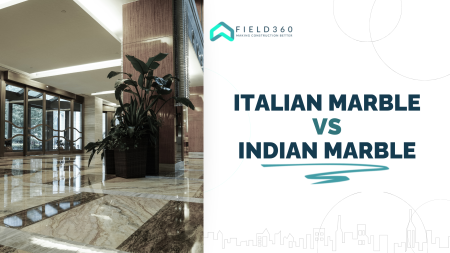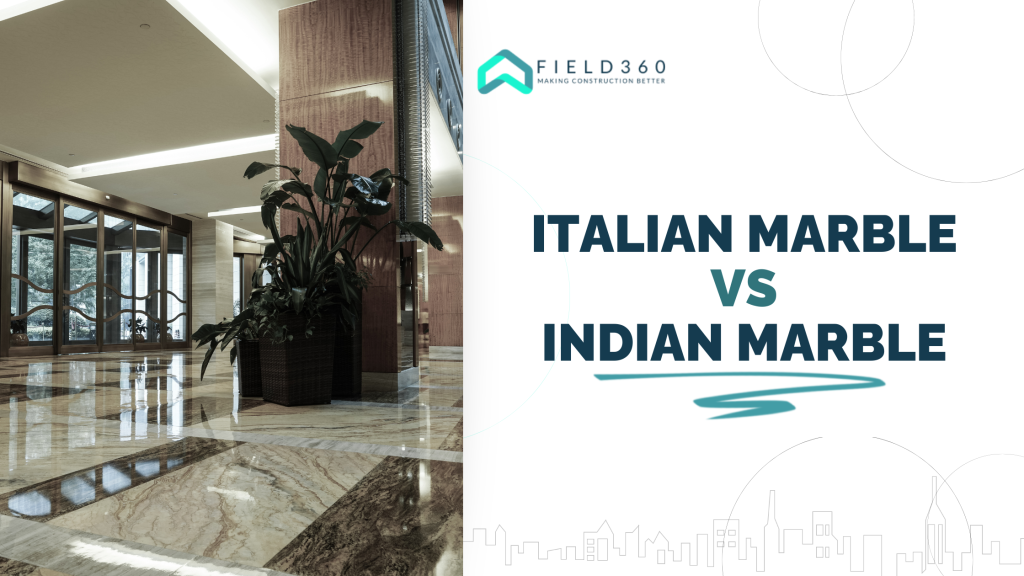A balanced investment portfolio should have a combination of low-risk, medium-risk, and high-risk assets. Having such a portfolio can ensure long-term financial growth. While choosing reliable assets for an investment portfolio, people usually think of investing in a rapidly growing industry like real estate. Also, there are people who choose to invest in fixed deposits for financial stability.
The two mentioned investment options are the most popular among investors. However, these options usually confuse investors, and they end up asking everyone in the fixed deposit vs real estate investment discussion, which one is better? As we said, both options are quite popular and serve different types of investors. To choose one, we should have a thorough knowledge of both the investment options. Here, we have tried to provide insights that can help you in choosing the right asset for your portfolio.
Fixed Deposit
Fixed deposit is an investment option in which funds are deposited with a bank or financial institution for a set period of time at a fixed FD interest rate. This account provides a stable and predictable return, making it an excellent investment option for individuals thinking of keeping wealth while earning a consistent income. FDs often have predetermined maturity dates, and money is unusable until the maturity period expires, which adds to the investment’s stability.
Advantages of Fixed Deposit
The following are some considerable advantages of fixed deposit:
- Fixed deposit accounts pay a fixed interest rate, which gives you regular and reliable returns on your investment.
- FDs are considered low-risk investments since they are not affected by changes in the market, making them a safer choice for conservative investors.
- In FDs, your principal is safe, and you are assured of receiving the initial investment plus interest at maturity.
- Also, section 80 CC of the Indian Income Tax Act allows a deduction of up to Rs 1,50,000 for investing in a 5-year tax saving deposit.
Disadvantages of Fixed Deposits
The following are some disadvantages that you may face as you choose fixed deposits:
- With fixed deposits, the money is locked in for the duration of the deposit. While premature withdrawal is permitted, it may result in a penalty. Such fines are levied against the interest income.
- The Indian Income Tax Act of 1961 states that interest earned on fixed deposits is taxed in accordance with the applicable tax slabs. Investors under the age of 60 can submit Form 15 G. However, senior citizens can escape tax deducted at source (TDS).
- FD interest rates remain fixed throughout the fixed deposit term. Financial institutions now periodically evaluate their interest rates.
Real Estate Investments
Real estate investments include the acquisition and ownership of tangible assets, primarily in the form of properties, with the goal of generating income, enjoying potential value appreciation, or both. This sort of investment has a direct relationship to tangible assets, separating it from securities such as stocks and bonds.
Advantages of real estate investment
The following are critical advantages of real estate investment:
- Real estate has the potential for capital appreciation, which is when the value of a property increases over time.
- Rental payments provide investors with a consistent source of income, increasing their overall return on investment.
- Real estate provides diversification benefits, acting as a hedge against market volatility that could affect other marketable securities.
Disadvantages of Real Estate
Consider the following disadvantages of real estate investment:
- Unlike FDs, real estate investments are relatively illiquid, as selling a property might take time and involve multiple transaction fees.
- Property ownership involves various obligations such as upkeep, property management, and dealing with tenants.
- Real estate values are affected by market conditions, making them vulnerable to economic downturns.
Fixed Deposit Vs Real Estate Investment: A Comparison
Choosing between fixed deposits (FDs) and real estate necessitates a careful examination of your financial goal, risk acceptance, investment term, and individual preferences. When choosing between the two investment options, consider the following factors:
Risk factor
For those who prioritize safeguarding capital above risk, FDs may be a better option. They provide a guaranteed return, and your principal is secured.
There is more risk in real estate investment because of market fluctuations. If you can accept some risk and are willing to wait out market cycles, real estate may be an option for you.
Investment term
FDs are best suited for short to medium-term goals. They provide liquidity, allowing you to get your cash when necessary, and are suitable for long-term goals.
Real estate investments are generally long-term in nature. Property values may rise over time, and rental income can increase the overall return. Real estate is better for long-term financial goals.
Return prospects
FDs offer a predictable and fixed return, which is typically lower than the potential returns on riskier investments. If stability and predictability are important, fixed deposits might be preferred.
Real estate offers the potential for better profits, particularly through capital appreciation and rental income. However, returns are not assured, and the real estate market is volatile.
Liquidity
FDs provide high liquidity, allowing withdrawals before maturity with penalties. If you expect to need the availability of your money in the short term, FDs may be a better option.
Real estate is relatively illiquid, and selling a home might take time. If you think that you may need money in the short term, real estate may not be the ideal option.
Diversification
FDs can add stability and steady income to a diverse portfolio.
Real estate provides diversification benefits because its value does not immediately connect with typical investment assets. Including real estate in your portfolio can help minimize risk.
Financial objectives
FDs are ideal for short-term savings, emergency funds, or capital savings.
However, real estate investment is usually related to long-term goals like retirement planning or growing money over time.
Tax implications
Interest income received on FDs is taxed. Other tax implications depend on your income and tax slab.
Real estate taxes can vary depending on factors such as rental revenue, capital gains, and municipal tax regulations.
Takeaway!
Fixed deposit vs real estate investment each has advantages and disadvantages, and the optimal option is determined by an individual’s specific financial goals and willingness to take risks. Real estate investment can be rewarding, but it also has a distinct set of risks and problems. At the same time, fixed deposits provide safety but the growth rate is very low.
Are you also considering making an investment in the real estate industry? Do not forget to explore Field360, a leading name in the construction industry. Field360 allows all stakeholders to access crucial information in real-time at a single stop. Better collaboration and communication among different parties result in higher efficiency and lower risk in the construction project while ensuring optimal results.
Frequently Asked Questions
For significant gains, real estate has more to offer. FD provides assured returns.
A fixed deposit is the best investment to earn monthly interest.
FDs are less prone to risk when compared to real estate investments as they involve assured returns.
Long-term capital appreciation, tax benefits, and rental income are some of the crucial benefits of real estate investment.
Real estate investment involves the purchase of physical properties such as land or homes with the intention of value appreciation or rental income. On the other hand, fixed deposit investment is the deposit of a sum amount with a financial institution or bank at a fixed rate of interest for a particular time period.












